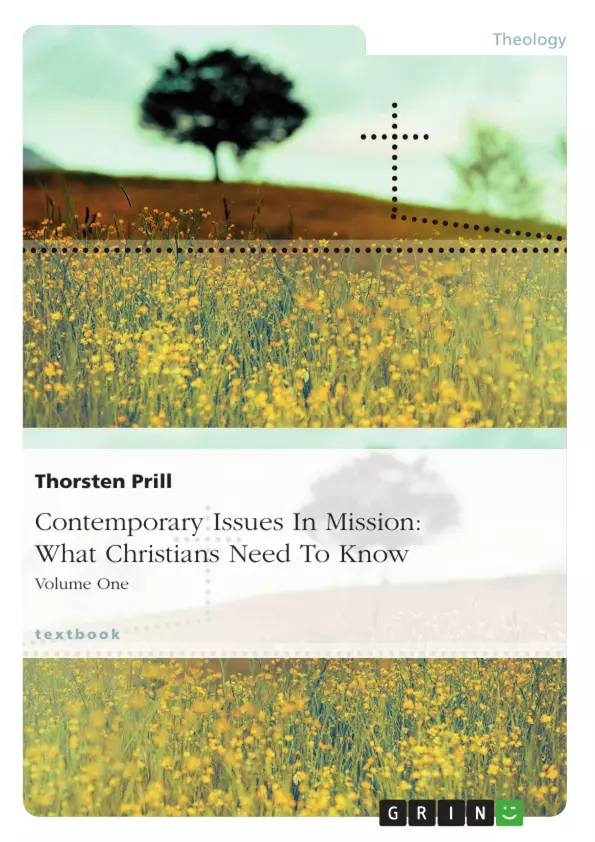There are an increasing number of missionaries and church leaders in Africa and Europe whose views of the gospel and the principle of submission are not very clear. Some views of the gospel are obviously shaped by postmodernism, feminism or liberation theology; and while some church and mission leaders understand submission in authoritarian terms others favour a laissez-faire approach. These different views and attitudes, however, raise some important questions: How can missionaries work together in a team or cooperate with indigenous churches if they do not agree on the nature of the gospel? What motivates missionaries for ministry if it is not the Good News as we can find it in the Bible? How can missionaries serve on the mission field if they hold to or are confronted with an unbiblical view of submission? The first part of this book examines several false versions of the gospel which Christians encounter on the mission field in Africa and elsewhere today. Furthermore, it looks at the difference the biblical gospel makes in our lives and calls us back to the cross of Christ as our only hope. The second part of this book examines the complex issues of submission, authority and accountability in the various relationships that exist whenever a missionary goes out to serve God and His Church. Some of the most vivid contemporary problems are addressed from a biblical perspective. It is my hope that everyone, from sending church, mission organisation, receiving church and missionaries themselves will find this book an important read to clarify the issues and be better prepared to serve in cross-cultural mission.
Table of Contents
- Abbreviations for Books of the Bible
- Foreword
- The Gospel and Mission
- Submission and Mission
- Biographical Notes
Objectives and Key Themes
This book examines contemporary issues in mission, specifically addressing the evolving understanding of the gospel and the principle of submission within cross-cultural mission contexts. It aims to clarify these concepts from a biblical perspective, encouraging greater understanding and cooperation among missionaries, sending churches, and receiving churches.
- The nature of the gospel in contemporary mission
- The role of submission in missional relationships
- The impact of postmodernism, feminism, and liberation theology on mission
- The importance of biblical authority and accountability in mission
- The need for a unified understanding of the gospel and submission within missional partnerships
Chapter Summaries
- Abbreviations for Books of the Bible: This section provides a list of abbreviations for books of the Bible used throughout the text.
- Foreword: The foreword outlines the author's personal journey in cross-cultural mission and highlights the changing landscape of mission in the 21st century. It also introduces the two main themes of the book: the evolving understanding of the gospel and the principle of submission.
- The Gospel and Mission: This chapter explores different interpretations of the gospel, particularly those influenced by postmodernism, feminism, and liberation theology. It emphasizes the importance of a biblically grounded understanding of the gospel for effective mission.
- Submission and Mission: This chapter delves into the complex issue of submission within missional relationships, examining various perspectives and highlighting the importance of biblical authority and accountability in all aspects of mission.
Keywords
This book focuses on the essential concepts of the gospel, submission, cross-cultural mission, biblical authority, accountability, postmodernism, feminism, liberation theology, and missional partnerships. These themes are explored in the context of contemporary mission challenges, particularly in Africa and Europe.
- Quote paper
- Dr. Thorsten Prill (Author), 2015, Contemporary Issues In Mission: What Christians Need To Know, Munich, GRIN Verlag, https://www.grin.com/document/295102



